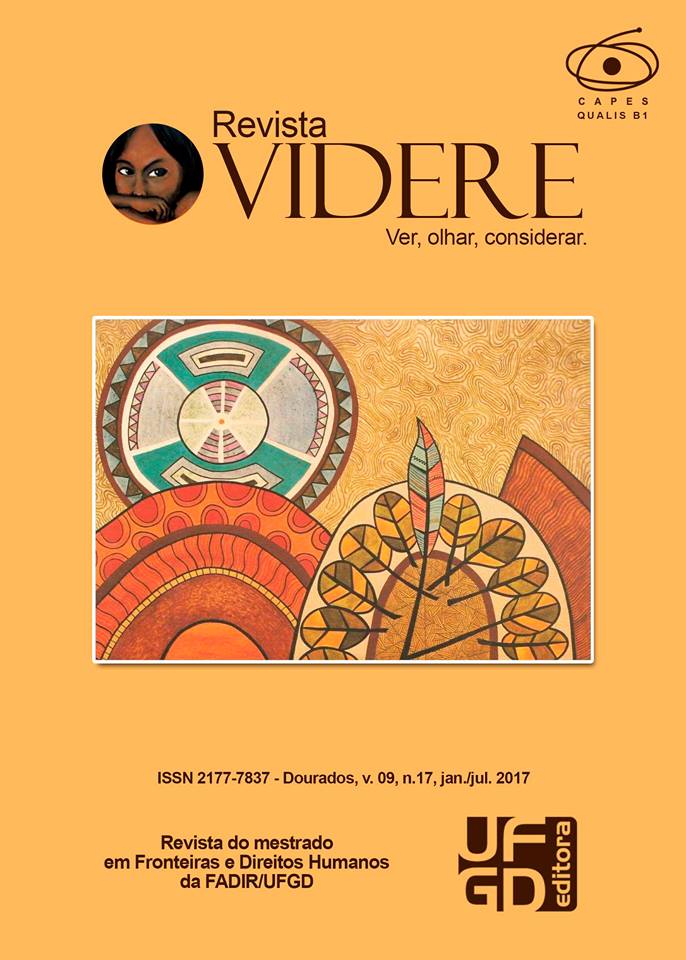Direito fundamental ao desenvolvimento e Direito do comércio internacional: um diálogo possível
DOI:
https://doi.org/10.30612/videre.v9i17.6293Palavras-chave:
Cooperação jurídica internacional. Direitos Humanos. Direito ao desenvolvimento. Direito emancipatório. Comércio internacional.Resumo
A crescente concentração econômica nas corporações privadas que atuam globalmente tem ameaçado a democracia, cooptando governos nacionais e órgãos internacionais de governança a fim de garantir seus interesses voltados à maximização do lucro, sem qualquer respeito aos direitos das gentes. Profunda crise econômica, em 2008, fraturou o mercado financeiro e exibiu a opacidade dos instrumentos regulatórios neoliberais. Ademais, desencadeou grave crise de confiança que ameaçou a globalização financeira ao desestimular os investimentos internacionais. Como resposta, importantes organizações internacionais, como a ONU, evidenciaram a urgente necessidade de transparência para a manutenção do sistema financeiro mundial. É, justamente, na oportunidade oferecida pela demanda por transparência que a Cidadania encontra um espaço de luta para consolidar seu direito fundamental ao desenvolvimento. Este espaço de luta, apropriado pela sociedade civil para a realização do diálogo dos opostos, é o que viabiliza a concreção do direito emancipatório e, portanto, protetivo da Cidadania.Downloads
Não há dados estatísticos.
Downloads
Publicado
2017-08-19
Como Citar
Gaspar, R. A., & Castro, F. S. V. de. (2017). Direito fundamental ao desenvolvimento e Direito do comércio internacional: um diálogo possível. Revista Videre, 9(17), 235–245. https://doi.org/10.30612/videre.v9i17.6293
Edição
Seção
Artigos
Licença
Os autores devem aceitar as normas de publicação ao submeterem a revista, bem como, concordam com os seguintes termos:
(a) O Conselho Editorial se reserva ao direito de efetuar, nos originais, alterações da Língua portuguesa para se manter o padrão culto da língua, respeitando, porém, o estilo dos autores.
(b) Autores mantém os direitos autorais e concedem à revista o direito de primeira publicação, com o trabalho simultaneamente licenciado sob a Atribuição-NãoComercial-CompartilhaIgual 3.0 Brasil (CC BY-NC-SA 3.0 BR) que permite: Compartilhar — copiar e redistribuir o material em qualquer suporte ou formato e Adaptar — remixar, transformar, e criar a partir do material. A CC BY-NC-SA 3.0 BR considera os termos seguintes:
- Atribuição — Você deve dar o crédito apropriado, prover um link para a licença e indicar se mudanças foram feitas. Você deve fazê-lo em qualquer circunstância razoável, mas de nenhuma maneira que sugira que o licenciante apoia você ou o seu uso.
- NãoComercial — Você não pode usar o material para fins comerciais.
- CompartilhaIgual — Se você remixar, transformar, ou criar a partir do material, tem de distribuir as suas contribuições sob a mesma licença que o original.
- Sem restrições adicionais — Você não pode aplicar termos jurídicos ou medidas de caráter tecnológico que restrinjam legalmente outros de fazerem algo que a licença permita.
(c) Após a publicação, os autores têm permissão e são estimulados a publicar e distribuir seu trabalho online – em repositórios institucionais, página pessoal, rede social ou demais sites de divulgação científica, desde que a publicação não tenha fins comerciais.



















